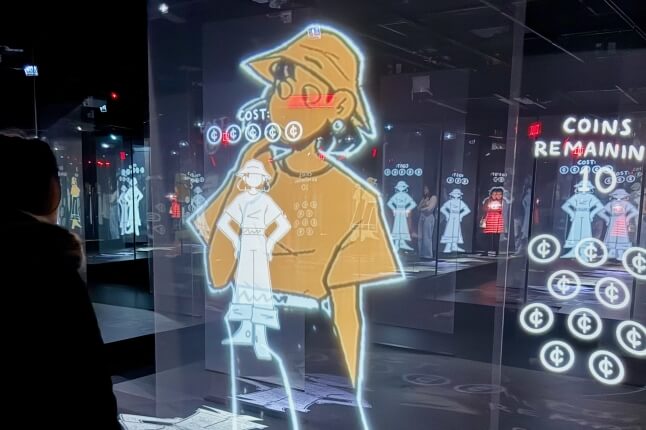News
This Engineers Without Borders travel team, comprised of undergraduate students, a faculty member, and a professional engineer mentor, spent 10 days in the village of Kibuon, Kenya, collecting data they will use to design a solution aimed at addressing the community's drinking water insecurity. (Photo provided by Harvard Engineers Without Borders)
As Kenya’s four-month dry season drags toward its end, residents of the Kibuon community in the country’s southwest corner nervously look for alternatives as their only sources of water begin to run dry.
When the rains return in October, relief floods this community of 1,600.
Now, a permanent and reliable source of clean drinking water is on the horizon for Kibuon, thanks to a partnership with the Harvard John A. Paulson School of Engineering and Applied Sciences (SEAS) chapter of Engineers Without Borders USA (EWB-USA).
A team of students traveled to Kibuon this summer to collect data they will use to design a solution aimed at addressing the drinking water insecurity.
The travel team included five undergraduate students, led by Billy Koech, S.B. ’20, an electrical engineering concentrator, faculty advisor Chris Lombardo, Associate Director of Undergraduate Studies in Electrical Engineering and Mechanical Engineering, and professional mentor and structural engineer Nisheet Reddy. On the ground in Kenya, team members held community meetings to understand the breadth of the challenge, mapped the entire community and its infrastructure, and conducted door-to-door household surveys focused on water usage and water security.
The Engineers Without Borders team works closely with Kibuon community members to ensure the project's long-term success. (Photo provided by Harvard Engineers Without Borders)
“We noticed that the people who are most impacted are women and children, since they often have to wake up very early to collect water from these springs before it is depleted by other members of the community,” Koech said. “Children often have to leave school early so they can get back home to collect water.”
And even when there is no drought to contend with, community members may face health risks from unclean water supplies. Often sourced from springs and shallow, hand-dug wells, the water may harbor bacteria and parasites that cause diarrhea, bloody stool, coughing, and fever, he explained.
Collecting reliable historical data was the biggest challenge students faced, Koech said, since they were forced to rely on the memories of those they surveyed. Time management was also a major hurdle, since they had only 10 days to gather as much information as possible.
But the community’s openness and eagerness to work on the project was inspiring, as evidenced by a women’s meeting they held to gather input, said Marwah Sabrah, S.B. ’21, a mechanical engineering concentrator.
Kibuon residents gather at a community meeting to provide input for the project. (Photo provided by Harvard Engineers Without Borders)
“We arrived at the location for the meeting a bit early with absolutely no idea of how many women would attend,” she said. “Then small groups started rolling in, and then large groups. By the time the meeting started, the women of Kibuon had filled the entire room with about 80 people. It was beautiful and rewarding to have the privilege of witnessing such a strong community relationship and dedication to the project.”
Guided by the data from their assessment trip, the students will now work to analyze the information and develop potential solutions. They will continue to work closely with members of the community each step of the way, Koech said.
The team plans to design a series of wells to provide a reliable water source that is easily accessible by everyone in the community. During the trip, they identified seven potential well sites, but will need to conduct a hydrogeological study of each to reveal whether drilling in that spot will actually provide water.
Drilling wells involves many complex challenges, Koech explained, such as ensuring they are placed far enough apart so they don’t draw water from each other. The wells need to be near houses, but far enough from latrines that there is no risk for contamination.
“If we prospectively plan for two to three wells evenly distributed in the community, how do we choose which location is prioritized and how do we tentatively serve the community members who are farther from the well?” Sabrah said. “These are questions and challenges we must face as we move the project forward, and we look to the community and our diverse team for creative solutions.”
As the team fine-tunes their plan, the stories of sacrifice shared by Kibuon community members are a driving force for Jude Najjar, S.B. ’21, a mechanical engineering concentrator.
The Engineers Without Borders students will continue to work closely with the Kibuon community as they spend the academic year fine-tuning their solution. (Photo provided by Harvard Engineers Without Borders)
The trip impressed upon her the incredible ability of people to make the best of situations even when faced with incredible obstacles.
“The biggest lesson I learned from the trip was that even if a problem requires a long time and a lot of steps to solve, I shouldn’t give up no matter how daunting the task may seem,” she said. “This lesson will definitely help me in the future, since we face problems and challenges all the time, and it is important to learn how to deal with these challenges without giving up.”
For Koech, the project is rewarding on an even deeper level.
“I am from Kenya—I grew up there for 18 years, so it meant so much for me to go back to my people and work with them towards solving problems,” he said. “These are my fellow countrymen and it felt great to go there and be able to partner with them.”
Topics: Student Organizations
Cutting-edge science delivered direct to your inbox.
Join the Harvard SEAS mailing list.
Press Contact
Adam Zewe | 617-496-5878 | azewe@seas.harvard.edu






